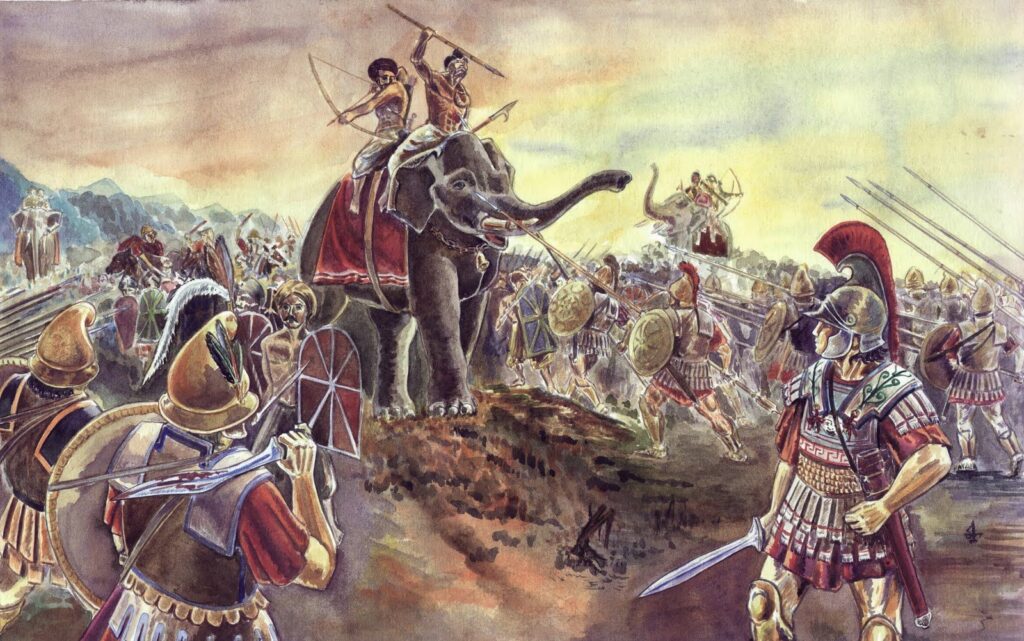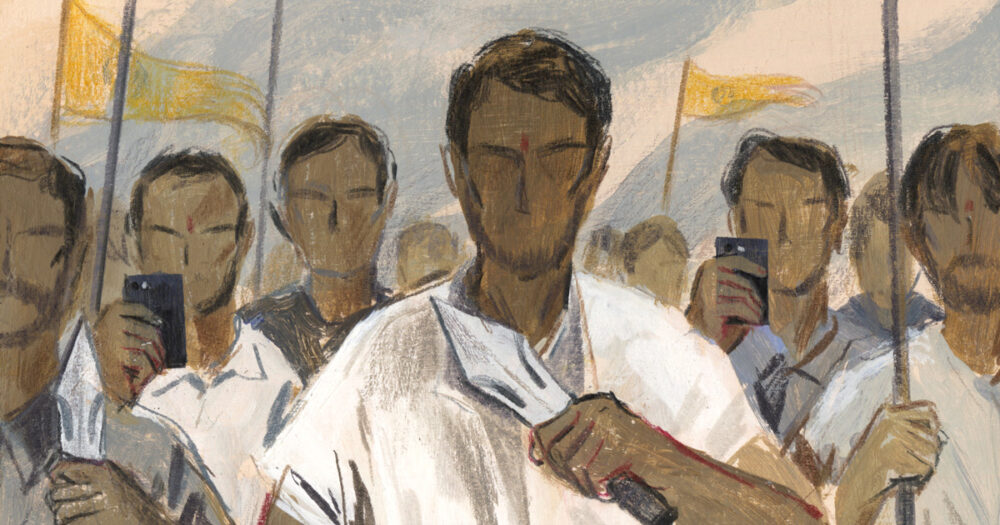Ever since the partition of the Indian subcontinent, somewhere in the hearts of every Hindu and Muslim a communal divide is smoldering. In 1976, an attempt was made to quench this divide by adding the term ‘Secular’ in our constitution but for the sake of political mileage, time again political parties have fueled the dying embers of the communal furnace turning it into a raging fire that has destroyed thousands of innocent lives.
The last six years have seen an unprecedented rise of a new kind of polarizing politics which has subtly seeped the idea of ‘Hindutva’ and ‘Hindu Pride’ wrapped around with the shroud of nationalism into the minds of gullible Hindus. These ideas have been further aggrandized through ‘propaganda by deeds’ and thereafter ensued by an obtrusively disdainful narrative of state-sponsored media.
Inside the mind of a credulous Hindu, disquiet has been instigated through constant badgering of Hindu chauvinism, further widening the schism among Hindus and Muslims. Scrutiny of the most prominent aspects that a radical Hindu believes as a threat to the existence of Hinduism is necessary so that we conciliate the widening divide:
The most prominent beliefs that hover inside the head of an anxious Hindu is that, throughout the history of the conquest of India, Hindu blood has always been soiled, and for nearly three-quarters of millennia, Hindus have been oppressed and looted at the hands of Muslim invaders, thus, pushing the once ‘golden bird‘ into destitution and if the Hindus don’t empower themselves now then the history will repeat itself and the Hindu way of life will be annihilated through forced conversion or death.

If we weigh the argument on the balance of rationality, this belief seems to be skeptical because, before the Industrial Revolution i.e. ere the 1750s, conquest was a way of life and an integral part of the culture. Warriors were revered in society. From Romans, Greeks, Persians, Mongols to Indian rulers, all waged war for the sake of glory, fame, or aspiration of riches through annexation while destruction and oppression were collateral for expansion. But with the inception of Industrialization, the culture across the world evolved and the age of crusades and expansion came to a halt.
The beginning of the 21st century brought an era of Globalisation where the phenomenon of development, international trade, foreign relations, free flow of ideas, and innovation prevailed and the idea to avenge the deeds of yesterday just for the sake of pride reeks of primitive arrogance. The belief of ancestral enmity has a political origin, fueled time, and again to satisfy the lust for power.
If we discuss the issue of forced conversion, we have to acknowledge that the medieval history of India is engulfed with war and conquest of the Indian subcontinent by various dynasties. These wars were not only instigated by loots and annexation but were also a result of cultural differences and whenever a war ended the prisoner were called upon to pledge their allegiance to the new victor, and conversion was one of the most trusted means for seeking loyalty. Those who resisted the conversion were killed basically for two reasons, firstly they were a threat to the new regime, and secondly, the mass execution of those who defied the ruler would instill fear in the hearts of the common masses, avoiding any uprising and criticism of the new rule.
Apart from that during peacetime, the subjects of Muslim rules were lured for conversion to Islam by the benefits of avoiding taxes like jizya imposed on the Hindus. But there is a recognizable pattern throughout that medieval history that, whenever a ruler commandeered the state based on bigotry policies, that dynasty perished within a few decades. The obsoletion of Khilji’s, Tuglaq’s, Lodhi’s, and Aurangzeb’s Mughal Dynasty were typical examples of the deteriorating impact of a staunchly religious stance of a fanatic ruler.

In the modern context, the idea of forced conversion in a democratic secular society is a delusion, the very constitution we abide by, grants the freedoms of conscience a status of a fundamental right for every citizen. Meaning that the belief that, one day someone will ask for conversion at the tip of the sword is as absurd as the idea that the Constitution of India will become obsolete.
There is a saying – “History does not teach anything, but punishes those who do not learn.” In conclusion, we have to let bygones be bygones because there is no way to undo the atrocities of the past. Dwelling in the past will only ruin the future of growth, prosperity, and harmony.








